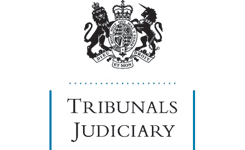|
Notes:
|
Reported as [2011] AACR 44.
Information rights – environmental information – local property searches and enquiries
The second respondent, PALI Ltd, a private search company, made a request by email to Kirklees Council for access to the information held by the Council which would allow them to answer questions on the Con29R, a standard form approved by the Law Society for enquiries relating to conveyancing of domestic property. They requested the information free of charge, asserting that the questions related to environmental issues as defined in Article 21 of the Directive in the Environmental Information Regulations 2004 (the EIR), which gave domestic effect to Council Directive 2003/4/EC on public access to environmental information, which was adopted to implement the Convention on Access to Information, Public Participation in Decision-making and Access to Justice in Environmental Matters. The Council replied stating that it did not consider that the information requested should be made available under the EIR as access to the local land charges register was governed by the Local Land Charges Act and Rules, and that any inspection of the register and the information it contained could be made upon payment of the appropriate fee, referring PALI to the Local Authorities (Charges for Property Searches) Regulations 2008 for the statutory basis for the fees charged. The company requested a review of the response under the Council’s internal complaints procedure, and the monitoring officer upheld the decision, relying on OneSearch Direct Holdings Ltd v City of York Council [2010] EWHC 590 (Admin) as confirmation that the Council’s current charging regime for local search information was lawful. The company complained to the Information Commissioner, who made an express finding that all the information at issue was environmental information within the meaning of the EIR, citing the decision of the First-tier Tribunal (the F-tT) in East Riding of Yorkshire Council v Information Commissioner and York Place (EA/2009/0069) in which the tribunal had dismissed arguments from that Council in respect of charging to provide similar information. The Commissioner indicated that reliance on OneSearch was misplaced and decided that the request from PALI was a valid request under the EIR that required the Council to make the requested information available free of charge. The Council appealed to the First-tier Tribunal. The appeal was transferred to the Upper Tribunal under rule 19(3) of the Tribunal Procedure (First-tier Tribunal) (General Regulatory Chamber) Rules 2009, as amended, in light of the importance of the issue involved and the wide implications of the outcome for local authorities.
Held, dismissing the appeal, that:
1. the Commissioner had made an express finding that the information requested fell with the definition of environmental information within regulation 2(1)(c) of the EIR, because it was information about plans or measures or activities that affected or were likely to affect the elements of the environment and, as that finding had not been challenged at all in the appeal, the Upper Tribunal heard no argument on the issue and did not review the finding (paragraphs 35 to 39);
2. it followed that all such information held by local authorities, in any form and whether at present held on a public register or not, was in principle subject to the free access provisions of those regulations, as held by the First-tier Tribunal in East Riding. That was self-evident on the plain wording of the Regulations themselves notwithstanding anything to the contrary in any other legislative provision or rule of law, by virtue of regulation 5(6) which prescribed expressly that such provisions were not to apply to prevent disclosure in accordance with the EIR. OneSearch was to be distinguished since application of the EIR was not considered in that case (paragraphs 40 to 43);
3. the words used by PALI in the e-mail were clear and unambiguous and amounted to a valid request under regulation 5 of the EIR for access to inspect the information identified. The word “request” in regulation 5 of the EIR was a common word that needed no qualification or further definition and was intentionally left wide and unrestricted for policy reasons. Even if the Council had been in any doubt as to what information was sought, clarification could, and should, have been sought under regulation 9 of the EIR (paragraphs 53 to 83);
4. there is no suggestion in the Convention, the Directive or the EIR that a public authority can impose charges on the public seeking personal inspection of environmental information which that public authority holds on the basis of recovering storage or retrieval costs. It is clear from the wording of regulation 8(2)(b) of the EIR that charging a fee can be permissible only in connection with the provision of a copy, or a supply of the requested information in some other way than allowing it to be examined in situ. That is consistent with regulation 4(2) of the Local Authorities (Charges for Property Searches) Regulations, which provides that charges do not apply in the case of free statutory information, except to the extent that a local authority is providing a service which is supplementary or incidental to that described in the enactment in question (paragraphs 96 to 99).
5. per curiam: it is not a valid ground of objection to a point being advanced in an appeal such as this that it had not been raised or relied on earlier, as these are public law proceedings whose object is to give effect to the true obligations of public authorities as to access to information and not to anything else (paragraph 47).
|
